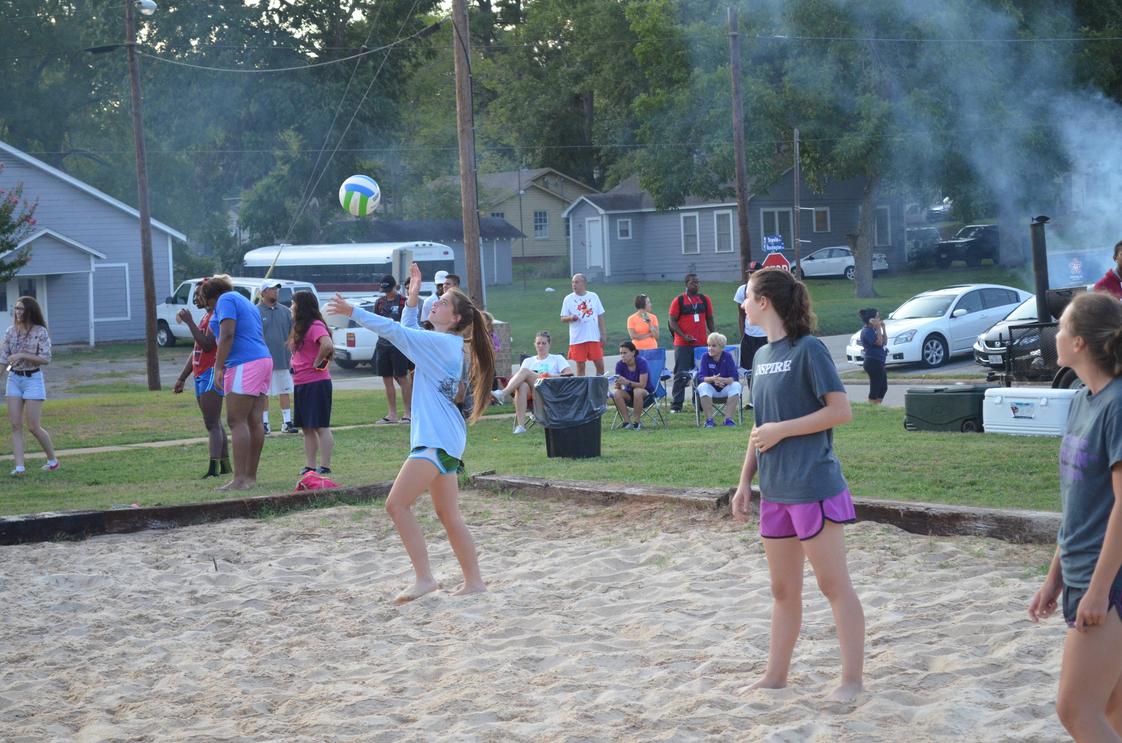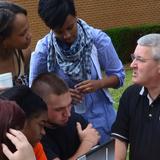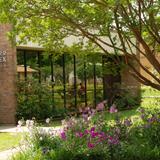- Jacksonville College - a Christian, independent, coeducational, two-year liberal arts college owned and operated by the Baptist Missionary Association of Texas, is committed to our students realizing the full potential of their abilities and pursuing lives of service to the human community, through the effective integration of faith and learning in a distinctly Christian environment.
- Jacksonville College exists to provide a quality education from a biblical worldview that challenges minds, transforms lives, and equips students for servant leadership and lifelong learning.
School Highlights
Jacksonville College-Main Campus serves 1,153 students (25% of students are full-time).
The college's student-teacher ratio of 20:1 is lower than the state community college average of 23:1.
Minority enrollment is 78% of the student body (majority Hispanic), which is more than the state average of 74%.
Quick Facts (2026)
- Enrollment: 1,153 students
- In-state tuition: $7,230
- Out-state tuition: $7,230
- Student-teacher ratio: 20:1
- Minority enrollment: 78%
- Source: Integrated Postsecondary Education Data System (IPEDS)
Top Rankings
Jacksonville College-Main Campus ranks among the top 20% of public schools in Texas for:
Category
Attribute
Diversity
School Resources
School Overview
The teacher population of 58 teachers has stayed relatively flat over five years.
Jacksonville College-Main Campus
(TX) Community College Avg.
Carnegie Classification
Associate's Colleges: High Transfer-High Nontraditional
Baccalaureate/Associate's Colleges: Associate's Dominant
Institution Level
Less than 2 yrs
At least 2 but less than 4 years
Institution Control
Public
Public
Total Faculty
58 staff
262 staff
School Calendar
Student Body
The student population of Jacksonville College-Main Campus has grown by 139% over five years.
The student-teacher ratio of 20:1 has decreased from 26:1 over five years.
The Jacksonville College-Main Campus diversity score of 0.76 is more than the state average of 0.70. The school's diversity has stayed relatively flat over five years.
Total Enrollment
1,153 students
4,931 students
Student-Teacher Ratio
20:1
23:1
# Full-Time Students
287 students
909 students
# Part-Time Students
866 students
4,022 students
# Enrollment Undergraduate
115 students
403 students
# Full-Time Undergraduate Students
287 students
890 students
# Full-Time Graduate Students
n/a
40 students
# Part-Time Undergraduate Students
n/a
4,166 students
# Part-Time Graduate Students
n/a
47 students
Total Dormitory Capacity
n/a
252 students
% American Indian/Alaskan
n/a
n/a
% Asian
1%
6%
% Hispanic
24%
46%
% Black
16%
13%
% White
22%
26%
% Hawaiian
n/a
n/a
% Two or more races
3%
3%
% Non Resident races
2%
2%
% Unknown races
32%
4%
Diversity Score
0.76
0.70
College Completion Rate (Students who graduate in less than 4 years)
35%
55%
College Completion Rate (Students who graduate in 4 years or more than 4 years)
n/a
34%
Average Graduate Earnings (10 Years)
$28,300
$34,600
Tuition and Acceptance Rate
The public in-state tuition of $7,230 is more than the state average of $3,764. The in-state tuition has declined by 9% over four years.
The public out-state tuition of $7,230 is more than the state average of $6,054. The out-state tuition has declined by 9% over four years.
In-State Tuition Fees
$7,230
$3,764
Out-State Tuition Fees
$7,230
$6,054
Tuition Notes
12 hours = $5,040.00
% Students Receiving Some Financial Aid
95%
84%
Median Debt for Graduates
n/a
$10,765
Median Debt for Dropouts
$2,938
$5,250
Acceptance Rate
n/a
84%
Sports
Total Sports Offered
4 sports
Sports
BasketballGolf
SoccerTennis
Extracurriculars
Total ExtracurricularsTotal Extra-curric.
4 extracurriculars
ExtracurricularsExtra-curric.
Club or Organization:
Arts and Music Programs:
Ministerial AlliancePhi Theta Kappa honor society
Arts and Music Programs:
ChoirCross Act Theatre
Source: 2024 (or latest year available) Integrated Postsecondary Education Data System (IPEDS) , School Administrators
School Notes
- Jacksonville College [locally known as Jacksonville Baptist College] was established in 1899 as a 4-year college. In 1918, it was reorganized as a junior college and has remained so since. The college is located in a city of 14,000 inhabitants, nestled in the beautiful, rolling hills of East Texas. The city boasts several industries, a prosperous farming region, friendly people, a fine system of public schools, a national seminary and many fine churches. The college offers Associate Degree in the liberal arts and sciences. Jacksonville College is accredited by the Commission on Colleges of the Southern Association of Colleges and Schools to award the Associate Degree and the Junior College Diploma.
Frequently Asked Questions
How much does Jacksonville College-Main Campus cost?
Jacksonville College-Main Campus's tuition is approximately $7,230 for In-State students and $7,230 for Out-State students.
What schools are Jacksonville College-Main Campus often compared to?
Jacksonville College-Main Campusis often viewed alongside schools like Tyler Junior College by visitors of our site.
What sports does Jacksonville College-Main Campus offer?
Jacksonville College-Main Campus offers 4 interscholastic sports: Basketball, Golf, Soccer and Tennis.
What is Jacksonville College-Main Campus's ranking?
Jacksonville College-Main Campus ranks among the top 20% of community college in Texas for: Diversity in US community colleges and Percent of students receiving financial aid.
Recent Articles

Community College Policies and Financial Aid Guide 2026
A 2026 guide to community college policies and financial aid, including FAFSA updates, state aid, tuition rules, and smart planning tips.

Get Better Grades in Community College by Being Social (2026 Update)
Learn how being social in community college boosts grades, retention, and career success. Updated 2026 strategies for academic achievement.

Navigating Community College as an Adult Learner in 2026
A practical 2026 guide for adults returning to community college, covering admissions, financial aid, career planning, and flexible learning options.


















